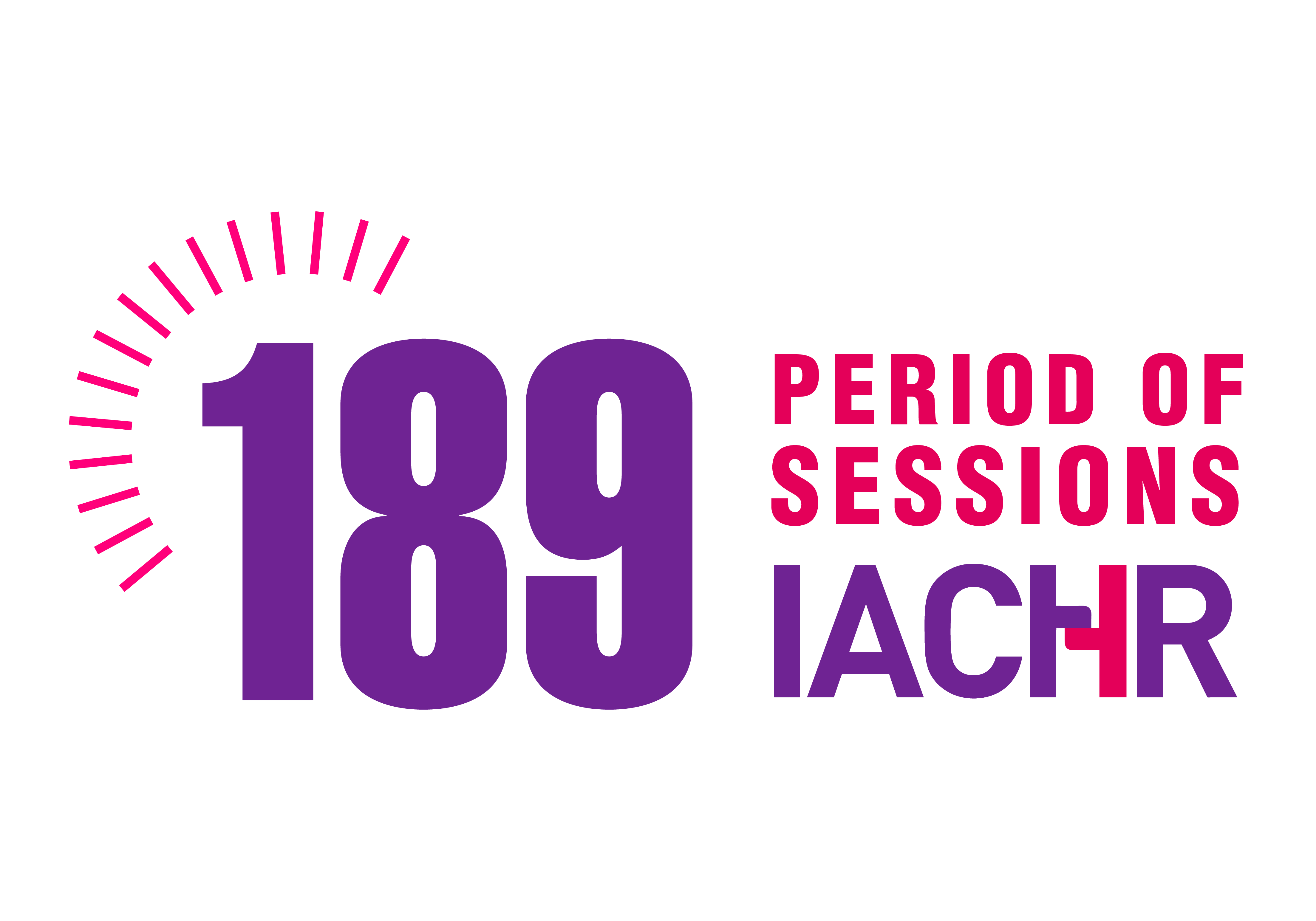
Press Release
IACHR Ends 189th Period of Sessions With 29 Public Hearings on Human Rights
March 11, 2024
Contact info
IACHR Press Office
Distribution List
Washington, D.C. – The Inter-American Commission on Human Rights (IACHR) celebrated its 65th anniversary and held its 189th Period of Sessions between February 26 and March 7, 2024, in Washington, D.C. During this period of sessions, the Commission held internal hearings about topics linked to its institutional mandate, as well as 29 public hearings about human rights in the Americas.
On February 26, at the opening of this period of sessions, the IACHR elected its Board of Directors for 2024, with Commissioner Roberta Clarke (Barbados) as President, Commissioner Carlos Bernal Pulido (Colombia) as First Vice President, and Commissioner José Luis Caballero Ochoa (Mexico) as Second Vice President.
Country hearings during this period of sessions addressed various issues. These included the rights of deaf persons in Chile; the forced recruitment of indigenous children and adolescents and the provision of reparations for victims of the conflict in Colombia; the rights of individuals involved in medical missions and freedom of association in Cuba; indigenous justice in Ecuador; the impact of uranium exploitation on indigenous peoples in the United States; and evictions of indigenous, black and peasant communities in Honduras.
Hearings were also held to discuss the impact of private businesses in Guyana; protection of rights defenders, journalists, and women who search for missing persons in Mexico; arbitrary deprivation of liberty for political reasons in Nicaragua; the effects of private activities on indigenous and peasant communities in Panama; the situation of victims of forced sterilization and the situation of staff at the Public Prosecutor's Office in Peru; the rights of individuals who are deprived of liberty in the Dominican Republic; right to nationality and the risk of statelessness in Uruguay; and the need to protect the integrity of political prisoners in Venezuela.
During the public hearing concerning impunity for sexual violence against women and girls in Haiti, the IACHR expressed its concern about the major multidimensional crisis that is ongoing in the country. The current unprecedented violence perpetrated by armed groups is particularly worrying and has a negative impact on Haitians' safety, with differentiated effects on women and girls. The Inter-American Commission urges the international community to support Haiti in its search for comprehensive, lasting solutions to the current crisis, which must include protecting human rights with an intersectional and gender perspective.
Seven hearings were also held to address regional issues including judicial independence; the impact of the expansion of the carbon market on indigenous peoples and local communities in Colombia, Guyana, and Peru; the human rights of people affected by climate change; the right to reintegration of women who are deprived of liberty; the situation of human rights defenders; the impact of corporations on human rights and the environment; and the situation of the human rights of older persons.
Two hearings addressed cases that are currently being assessed by the IACHR: Liga de Mujeres Desplazadas (League of Displaced Women) v. Colombia and Fourteen Maya Q'eqchi Communities v. Guatemala. A further hearing followed up on seven precautionary measures granted in favor of indigenous communities in Guatemala.
During this period of sessions, the IACHR held 16 working meetings. There were working meetings with Brazil, Colombia, Guatemala, Guyana, Haiti, Honduras, Mexico, Paraguay, and Perú, that focused on monitoring precautionary measures, friendly settlements, and case recommendations. There was also a high-level talk with the Caribbean Court of Justice, as well as a regional meeting that brought together 18 countries in North, Central, and South America and 13 Caribbean countries.
In addition, the Commission continued to work on advancing its Policy on the Prioritization of Petitions and Cases and on the implementation of measures to expedite the processing of cases through knowledge management.
The Commission thanks States and civil society organizations for their contributions to this 189th Period of Sessions. The IACHR further notes Article 63 of its Rules of Procedure, which says that States must guarantee the safety of all the persons who attend the Commission's public hearings and must not carry out reprisals against them or their families based on the testimony or expert opinions they have provided the Commission.
This press release is being published alongside an annex with summaries of all the public hearings held during this period of sessions. Videos of the hearings are available on YouTube, while photos are available on Flickr.
A principal, autonomous body of the Organization of American States (OAS), the IACHR derives its mandate from the OAS Charter and the American Convention on Human Rights. The Inter-American Commission has a mandate to promote respect for and to defend human rights in the region and acts as a consultative body to the OAS in this area. The Commission is composed of seven independent members who are elected in an individual capacity by the OAS General Assembly and who do not represent their countries of origin or residence.
The IACHR is a principal and autonomous body of the Organization of American States (OAS), whose mandate stems from the OAS Charter and the American Convention on Human Rights. The Inter-American Commission has the mandate to promote the observance and defense of human rights in the region and acts as an advisory body to the OAS on the matter. The IACHR is made up of seven independent members who are elected by the OAS General Assembly in their personal capacity, and do not represent their countries of origin or residence.
No. 051/24
5:35 PM



